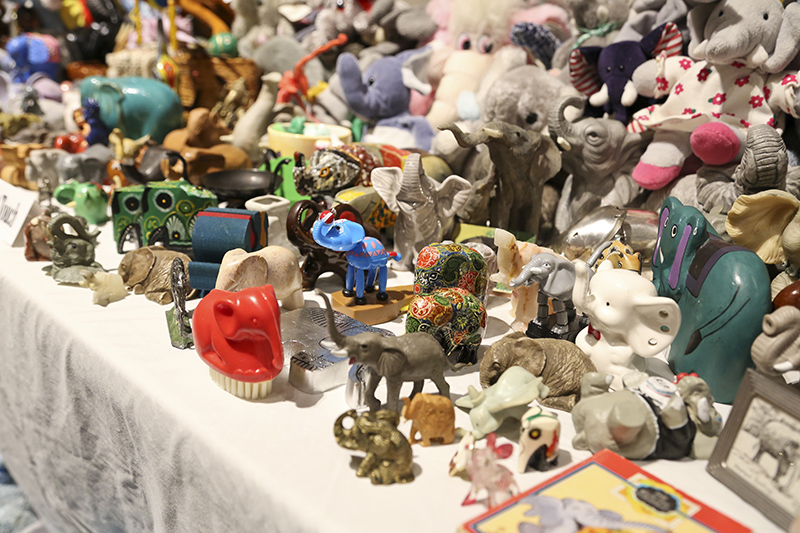A survey on living spaces conducted by the magazine Mindful, and published in the June 2016 issue, asked people where they put things that they had not used in three years. Here are the results:
55% donate it to charity.
22% let it petrify at the bottom of a closet somewhere.
6% chuck it immediately.
7% insist there is a use for everything and keep it.
Everyone else sells their stuff or puts it in storage.
Of course, there are more creative ways of getting rid of it. Some people simply stick it at the curb outside their house and find it is claimed quickly by passers-by. Others have been known to gift wrap it, so it is more likely to disappear. But resist the urge to pay money to put things into public storage when you know that you are highly unlikely to ever use them.
I am not talking to hard core hoarders who may need professional help, I am talking to the bulk of us who simply have a tough time getting rid of stuff that we no longer need. And I admit that most of us find it a lot easier just to park something in an out-of-the-way place rather than get rid of it.
Packrats are compulsive keepers. The things they keep are not necessarily useless, but they are seldom used. In fact, most of the items are squirreled away out of sight, nullifying any possible usefulness. Time, money, and space are consumed needlessly by these superfluous possessions.
What possesses them to persist in possessing these possessions? There are many reasons, just as there are different types of packrats. One type of packrat not mentioned above is the collector. These specialists accumulate specific items, whether they are little mice figurines, hockey cards or old books. This could be classed as a hobby and is not harmful. Unfortunately, it can lead to other collections such as buttons, beer cans and pennies, finally regressing to pieces of string, bottle caps and lint from the dryer. Collecting can become a compulsion.
Here are a few common characteristics of packrats in the form of an acronym spelling the word PACKRATS. A few words of explanation and a suggestion or two follow them. In general, packrats:
Put an unrealistic value on their old stuff.
Just because something was expensive to buy in the past, does not mean it is worth that much now. Most items rapidly depreciate and replacement costs frequently plummet. This is particularly true of electronic equipment. Items that we paid $500 for ten years ago can be purchased for less than $100 today.
Attempt to retain the past by retaining past treasures.
What’s past is past. We can never relive it. Constant reminders of days gone by can prevent us from enjoying the present and anticipating the future. Getting on with life may require cutting ties to the past.
Comfort themselves with familiar possessions.
It is natural to resist change; but it is not healthy. Old possessions that have lost their usefulness may not only comfort us but also serve to encourage the status quo. We should not seek comfort in things but in people.
Keep for the sake of keeping (keepsakes.)
What enjoyment could we possibly get from things hidden in closets, stashed in crawl spaces, and packed away in cartons? Out of sight, out of mind. We do not enjoy them because we do not even know we have them! This is where packrats get their name. If you have not missed something in a year, get rid of it.
Rarely part with gifts.
By accepting a gift, you are not making a lifetime commitment. A gift simply conveys a message of goodwill, thanks, congratulations, friendship, or love. Get rid of the impractical gifts and keep the message in your heart. That is what is important.
Always rationalize their decision to keep things.
Ask a packrat why they keep something, and they will give you a good reason – one that is reasonable to them, that is. The favorite reason is, “It’ll come in handy someday.” It is hard to disprove that one. Packrats should keep in mind, however, that disorganization, clutter, and space problems are a high price to pay for the off chance that the item may be useable in the future.
Take pride in their possessions.
This is not true of all packrats but includes those who believe that whoever dies with the most toys, wins the game of life. Some people measure their value by the value of their valuables. People in this category should base their self-esteem on who they are and not on what they have.
Seldom toss things out without prompting.
Packrats are made, not born. They have developed these habits over the years. Firmly entrenched, these habits are hard to break. It is easier for packrats to change with the encouragement and reassurance of others. Giving them a book will probably not help; they may not get around to reading it; they will just keep it.
There may be few positives about packrat tendencies. And if you have an aging parent or friend who feels comfortable among familiar possessions from the past, it could be a blessing. Do not feel that you must talk someone out of tossing away things that add stability and comfort to their lives. The bible tells us there is a time to keep as well as a time to throw away. Taking photographs of them before discarding might help. But, although a picture may be worth a thousand words, cuddling a picture of a childhood teddy bear just won’t cut it.
Successful People Read. A Lot.
What do Warren Buffett, Mark Zuckerberg, Elon Musk and Oprah Winfrey have in common? They all read - a LOT! If you want to be successful you need to read. We have over 30 short ebooks designed to get you booked up fast!



Recent Comments